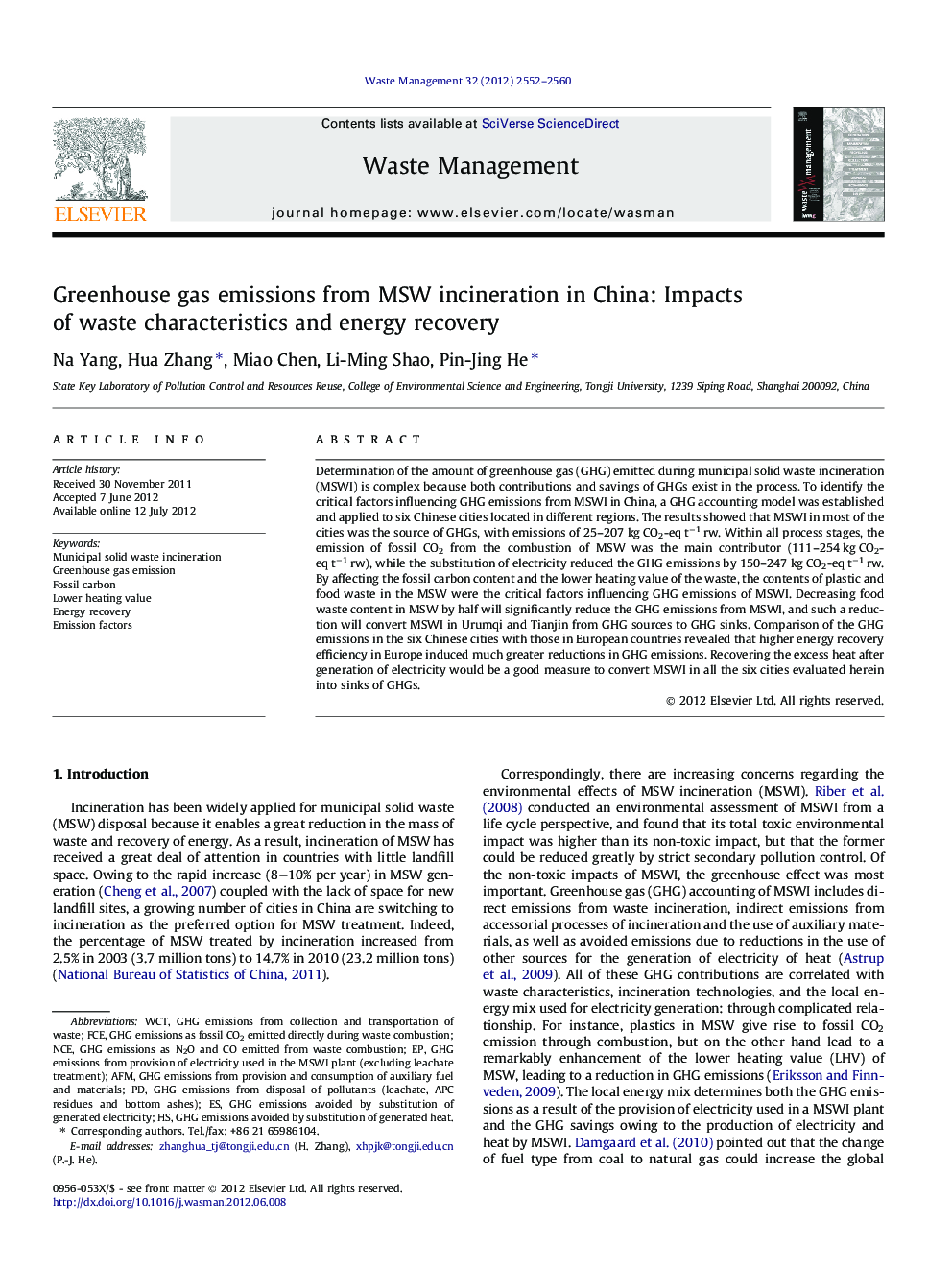| Article ID | Journal | Published Year | Pages | File Type |
|---|---|---|---|---|
| 4472231 | Waste Management | 2012 | 9 Pages |
Determination of the amount of greenhouse gas (GHG) emitted during municipal solid waste incineration (MSWI) is complex because both contributions and savings of GHGs exist in the process. To identify the critical factors influencing GHG emissions from MSWI in China, a GHG accounting model was established and applied to six Chinese cities located in different regions. The results showed that MSWI in most of the cities was the source of GHGs, with emissions of 25–207 kg CO2-eq t−1 rw. Within all process stages, the emission of fossil CO2 from the combustion of MSW was the main contributor (111–254 kg CO2-eq t−1 rw), while the substitution of electricity reduced the GHG emissions by 150–247 kg CO2-eq t−1 rw. By affecting the fossil carbon content and the lower heating value of the waste, the contents of plastic and food waste in the MSW were the critical factors influencing GHG emissions of MSWI. Decreasing food waste content in MSW by half will significantly reduce the GHG emissions from MSWI, and such a reduction will convert MSWI in Urumqi and Tianjin from GHG sources to GHG sinks. Comparison of the GHG emissions in the six Chinese cities with those in European countries revealed that higher energy recovery efficiency in Europe induced much greater reductions in GHG emissions. Recovering the excess heat after generation of electricity would be a good measure to convert MSWI in all the six cities evaluated herein into sinks of GHGs.
